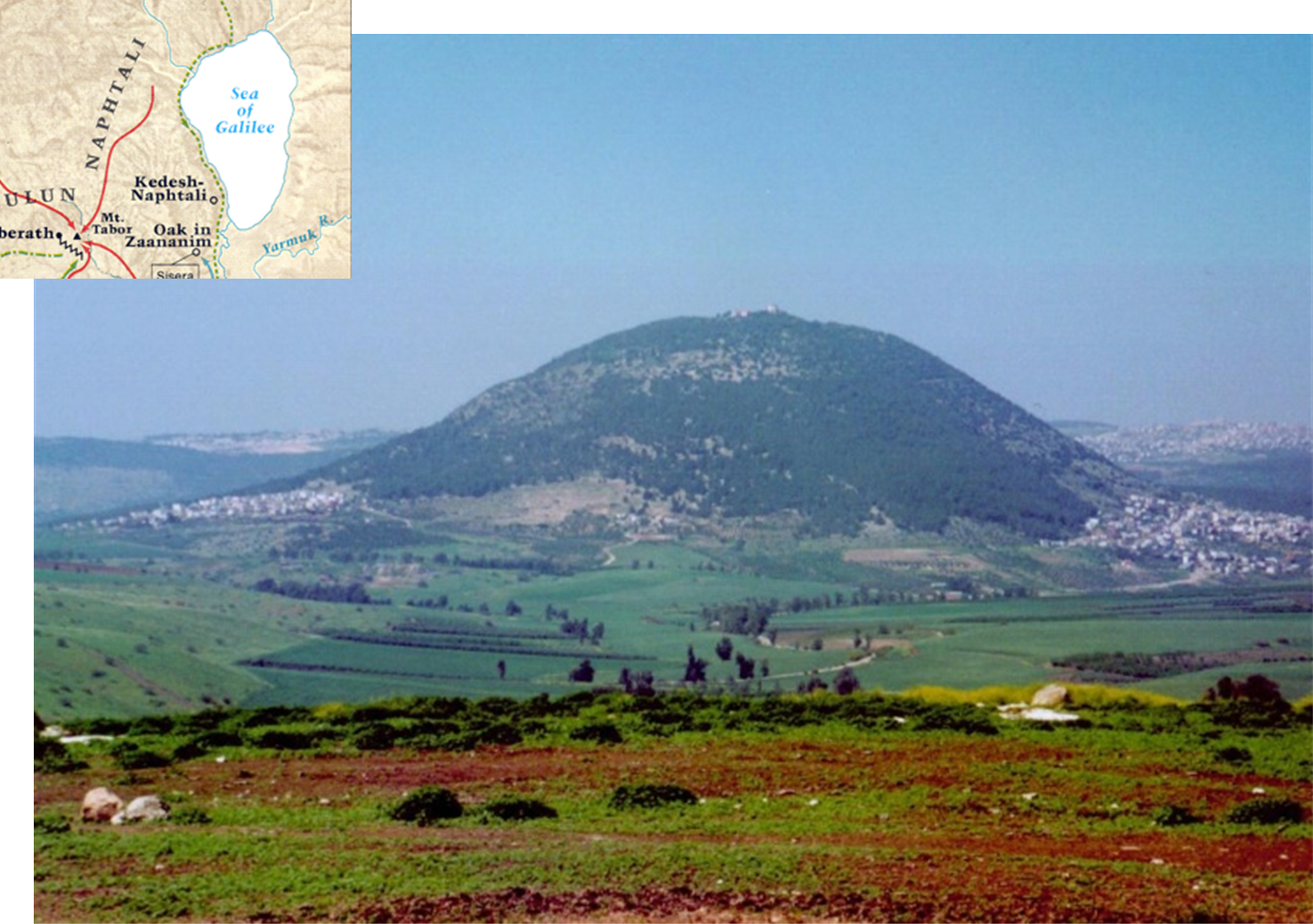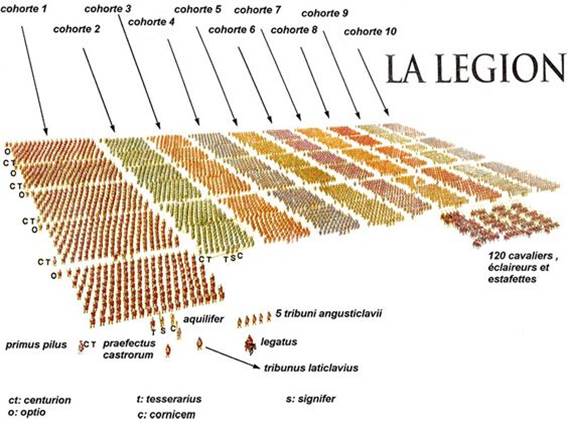Judges 4-5. Deborah, and Barak, part 3.
length: 74:56 - taught on Jan, 29 2017
Class Outline:
Title: Judges 4-5. Deborah, and Barak, part 3.
Announcements / opening prayer:
JDG 4:6 Now she sent and summoned Barak the son of Abinoam from Kedesh-naphtali, and said to him, "Behold, the Lord, the God of Israel, has commanded, 'Go and march to Mount Tabor, and take with you ten thousand men from the sons of Naphtali and from the sons of Zebulun.
There are two possible locations for Kedesh-nathtali, one in Upper Galilee near Hazor (Katz-or: the enemies capital) and the other in lower Galilee near Mt. Tabor, where Israel's army will gather.
The early church believed that Mount Tabor was the mount of our Lord's transfiguration.
JDG 4:7 'And I will draw out to you Sisera, the commander of Jabin's army, with his chariots and his many troops to the river Kishon; and I will give him into your hand.'"
Barak will send out word that the word of God has come to the prophetess Deborah that Israel is to fight against Jabin. Deborah instructs him to call out to Naphtali and Zebulun, but as we will see, other tribes respond as well and some of the tribes are criticized for not joining. Fighting men from Ephraim, Benjamin, Western Manasseh, and Issachar will also join the army and perhaps, rather than physically joining the army at Tabor, will attack from the south. Reuben is criticized for doing nothing as was Eastern Manasseh, Dan, and Asher. Judah and Simeon are not mentioned, nor are they chastised for staying away. They might have been busy fighting Philistines who bordered them to the west.
We can imagine that some joined him and proceeded with him to Tabor while others joined the army at Tabor, where preparations were made for war.
Tabor

Since the people have no weapons, a big part of the preparation is forging weapons. As we have seen with Shamgar, an oxgoad makes a fine weapon, but with these the blacksmiths were busy at work.
They have to forge weapons. Of course, the quality and quantity of weapons made by man will not decide the outcome. God's weapon is simply going to be heavy rain.
In this we find another church age application.
2CO 10:1 … 3-4
Now I, Paul, myself urge you by the meekness and gentleness of Christ … For though we walk in the flesh, we do not war according to the flesh, for the weapons of our warfare are not of the flesh, but divinely powerful for the destruction of fortresses.
Though Israel did fight a physical war with weapons of the flesh, they only truly won the battle in their souls. If they approach the battlefield in faith they are guaranteed victory. The same is true for us, although, outside of the Christian fighting in an actual war, our battle remains invisible.
Barak must first summon the army and then God will deliver Sisera. This is God's sovereignty in action without eliminating human responsibility.
God makes the promises and we are called to act on the promises and it is God who always brings the victory. God always wins, but the enjoyment of that victory for man depends upon his faith. Christ attained victory over death and sin but a person has to have faith in Him to appropriate the fruits of that victory. In our lives we are victors through Christ and we enjoy that victory in our everyday lives through our faith in the promises of God, the plan of God, and the commands of God.
For the mind set on the flesh is death, but the mind set on the Spirit is life and peace.
The Spirit is a gift to each believer. Is it so hard to set our minds on His ways?
Naturally, we must learn His ways first, and when we do we will find out they are lovely. Is it works or faith to set our minds on Him? Faith all the way. And yes, it is true that I cannot set my mind on Him and on the flesh at the same time. We know our flesh and we learn more about it from the word of God and at the same time we also learn the ways of God, God the Holy Spirit who indwells every one of us, and by faith our longing for one or the other becomes very strong.
But I say, walk by the Spirit, and you will not carry out the desire of the flesh. For the flesh sets its desire against the Spirit, and the Spirit against the flesh; for these are in opposition to one another, so that you may not do the things that you please [that you wish].
JDG 4:6 Now she sent and summoned Barak the son of Abinoam from Kedesh-naphtali, and said to him, "Behold, the Lord, the God of Israel, has commanded, 'Go and march to Mount Tabor, and take with you ten thousand men from the sons of Naphtali and from the sons of Zebulun.
JDG 4:7 'And I will draw out to you Sisera, the commander of Jabin's army, with his chariots and his many troops to the river Kishon; and I will give him into your hand.'"
JDG 4:8 Then Barak said to her, "If you will go with me, then I will go; but if you will not go with me, I will not go."
There are a number of reasons why Barak may demand her presence.
Is Barak's faith weak or does he simply want to be assured of the presence of God? As you may imagine, people get on both sides of the issue.
Barak is not a coward, but he also doesn't need Deborah to be there. He likely thinks her presence will assure the presence of God.
God doesn't need Deborah to be there for Him to be there. There is no need for Deborah to go with him. She has assured him of victory as a prophet of God, but he must think that if she is there then God will preserve her and him and the army. So we might conclude that he has faith, but it's not matured, and that would describe every believer at some point in their lives.
His flat out admonition that he will not go if she doesn't go reads to me as disobedience.
As for Deborah, she doesn't admonish him for his weak faith, but having a more mature faith she assists him and encourages him.
Now we who are strong ought to bear the weaknesses of those without strength and not just please ourselves.
Christianity is never a competition like it had become in Corinth. Man is constantly trying to pull his ways into Christianity, but they never fit and they only diminish the real power of Christ.
Barak is willing to go and to fight a far superior army with superior training, leadership, and equipment, so he is not a coward. Israel's army is weak, small in number, without any experienced leadership, and without much weaponry. Plus, Sisera, a wise and experienced general, is going to draw them out into the Jezreel Valley where his chariots are effective. On paper, the advantage is hugely in Sisera's favor. So Barak is willing to face these odds, but only if the prophetess goes with him.
It may be that he doesn't feel up to the task and is truly humble about his abilities, thinking that God will help his weakness if Deborah is with him.
It may also be that he fears the army will lack faith unless the prophetess is in their midst.
God doesn't need man in any way. His word is His power and it is always yes and amen.
By the word of the Lord the heavens were made, And by the breath of His mouth all their host.
God doesn't need me or you. We have been given the privilege to serve Him and all the power and wisdom to do it well, but we are always vessels of mercy who have been given a great opportunity by God.
In sympathy for Barak, I know exactly what it is like to desire to face something with someone I know and trust rather than to go it alone, and I am not shy about asking for their help.
Faithful Deborah makes the point clear. God doesn't need them, nor does He need to honor them.
JDG 4:9 And she said, "I will surely go with you; nevertheless, the honor shall not be yours on the journey that you are about to take, for the Lord will sell Sisera into the hands of a woman." Then Deborah arose and went with Barak to Kedesh.
The prophetess has seen this by the grace of God. Barak will not kill Sisera, rather a woman will, but not Deborah. This may be punishment for Barak's lack of faith, but this too is only conjecture.
JDG 4:10 And Barak called Zebulun and Naphtali together to Kedesh, and ten thousand men went up with him; Deborah also went up with him.
Roman legion - about 5,000 men. Israel would not have been this organized.

The Roman's were the most organized fighting force up to their time and neither Israel or Canaan would have been as organized, but it gives us an idea of how many are taking to the battlefield and we must remember that more Jews from other tribes are going to join them, perhaps doubling their numbers. If this battle stays true to form of past battles then Israel is outnumbered, plus they have no chariots.





